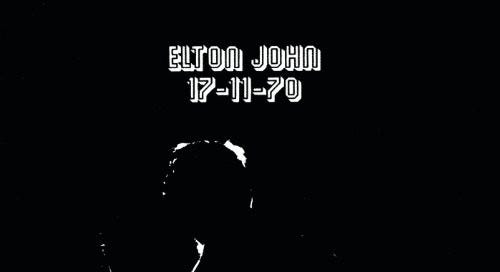Music
Elton John — 17–11–70
To roughly two generations now, Elton John is probably considered the flamboyant aging musician on his perennial last tour.
The part that is slowly slipping into the shadows is just how much of a bad ass he was.
If you need evidence, I would encourage the curious to drop the needle — or hit the play button — either way works on 17–11–70.
Released in April of 1971, this is Elton John’s fifth official release. To place that in context, his self-titled first album came out in 1969.
I’ll let the adventurous and mathematically motivated do the math. And I’ll let the more thought-motivated try to think of a modern artist who could parallel that.
Listening to this album through a modern lens, it may be a little confusing. Especially if you’re not familiar with such names like King Biscuit Flour Hour and Westwood One. Those were recorded live concerts that would air on FM radio stations, that music nerds like me would stay up and listen to.
A modern-day equivalent would be NPR’s Tiny Desk concerts.
This album was recorded, well, in 1970. More specifically, in November of 1970. And even more specifically, on the 17th of that month.
It was first broadcast live from A&R Recording Studios in New York City in front of a little over a hundred people (if we’re to believe Dave Herman’s introduction.)
If you do listen, keep it in the back of you’re head that what you’re hearing is just three people and three instruments — Elton John on piano, Dee Murray on bass and Nigel Olsson on drums. While Dee Murray passed away in 1992, Nigel Olsson is still playing drums with Elton John.
The album was produced by long-time Elton John producer Gus Dudgeon and engineered by Phil Ramone (who would go on to produce a boatload of classic rock artists, including fellow piano man Billy Joel.)
17–11–70 has been released in three different incarnations:
The original in 1971.
A re-issue in 1995.
A record store day 2-LP re-issue.
So a track listing is futile, but rest assured, you’ll know most of the songs. If not all of them …and if you don’t know them, you’d be foolish not to enjoy any of them.
Folklore is such that he finished the concert with blood on the piano. If you listen to the album, you may just believe this to be true.
John himself has said in several interviews that he believes that this recording is his best live performance. I’d be inclined to agree, but having only seen him once, it would be unfair to compare the 71-year-old I saw versus the 23-year-old recorded here. While the 71-year-old may not have left blood on the piano, he still kicked a little ass.
Elton John may consider this recording his best live performance, but I’ll level-up on that by saying it may just be the best live recording in rock music.
And yes, it’s that good.





